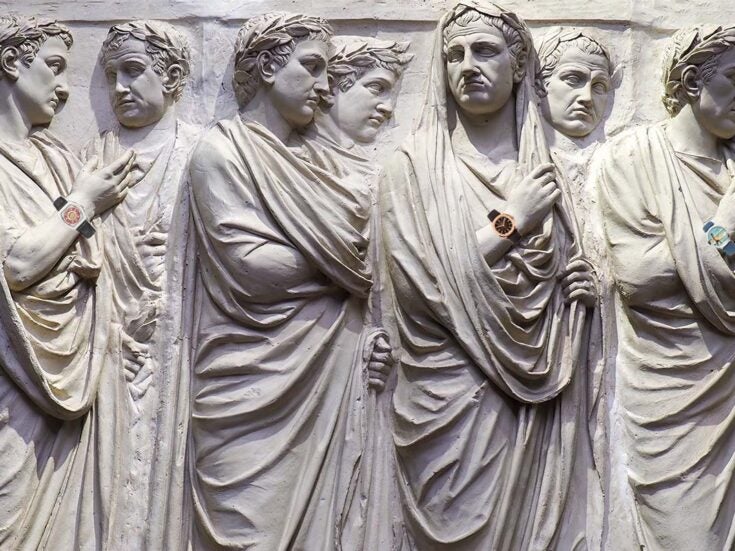Sophie McBain watched an interview with the new finance minister of free Tunisia. He’s got the banking and political skills – now just to run the economy…
Sophie McBain watched an interview with the new finance minister of free Tunisia. He’s got the banking and political skills – now just to run the economy…
GLOBAL POWER CAN shift fast. In issue 23 of Spear’s we examined Singapore’s ambition to become the next Switzerland, and, in a pre-recorded interview broadcast this morning at Capital Impact 2011, Tunisian finance minister Jaloul Ayed said he hoped that Tunisia will become the ‘Singapore of the Mediterranean.’
It’s a lofty aim for the newly democratising North African state, but how realistic is it, and when (or if) the people of Egypt, Tunisia and Libya are able to exercise their democratic rights, will they support their smooth-talking finance ministers’ liberalisation plans?
Not necessarily, says David Batter, Regional Director for MENA at the Economist Intelligence Unit, particularly when the Arab Spring was in part a ‘push back’ after economic liberalisation programmes that may have generated economic growth, but that failed to deliver benefits to the majority.
US-educated Ayed did undoubtedly cut an impressive figure. He delivered a pitch that was perfectly geared towards the audience of investors and analysts, and he can point to an impressive CV, having worked at Citibank for 23 years.
He promised privatisation, and pointed to business opportunities in Tunisia that would be generated by the launch of two state investment vehicles offering to co-finance private sector projects, as well as describing projects to support SMEs, the technology sector, microfinance, and young entrepreneurs. To convince any remaining sceptics, he spoke of the importance of introducing a culture of ‘good governance’, ‘transparency’ and ‘social responsibility’.
Politics clearly suits Ayed, though he never applied for his ministerial position (it was given to him after the Jasmine Revolution). ‘You need to ask me, “What are the reforms?”’ he implored his interviewer at one point, and when she obliged, he continued to describe the need to overhaul capital markets, the banks, the public sector, the machinery of central government and education.
Not everyone was won-over by the performance. Batter says he experienced a strong sense of ‘déjà vu’ — Ayed’s speech could equally have been uttered by Mubarak or Ben Ali-era ministers.
‘We need an honest policy debate,’ Batter explains. ‘It’s not enough for a really fluent minister to talk to you if that’s not going to filter down to the electorate and that will probably go over most of the electorate’s heads.’ Foreign investors ought to be aware that the initial post-revolution reflex in Egypt and Tunisia has been to ‘increase the role of the state,’ rather than make space for the private sector, he says.
One thing that foreign investors needn’t fear, Batter continues, is the election of the Muslim Brotherhood in Egypt or Al Nahda in Tunisia. These populist Islamist groups won’t necessarily be anti-business (although the same can’t necessarily be said of Egypt’s Salafist movement.)
Nevertheless Egypt, Tunisia and Libya are in a precarious position: their uprisings have choked off growth and FDI, and while pro-investment, pro-business reforms might be just what is required to reboot their economies, they might equally be some of the most difficult to reforms to carry out when a newly vocal sector of the population resents the unequal benefits that economic liberalisation brings.
The people of Libya, Egypt and Tunisia have won an incredible political battle, but regionally, the Gulf States are winning economically. Foreign investment has boomed in the GCC countries, and especially Saudi Arabia, as capital fled the uncertainty generated by the Arab Spring and hunkered down in the predictably undemocratic Gulf.
If any country can claim to be the ‘Singapore of the Middle East’ it’s probably the UAE, Batter believes. Democratisation and economic liberalisation are not necessarily natural bedfellows, but at least the Tunisian finance minister isn’t aiming to become the ‘Saudi Arabia of the Maghreb.’








